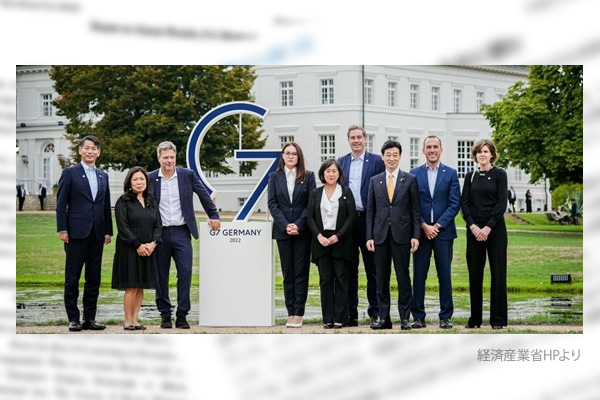Trade ministers from the Group of Seven industrial democracies have recently met in Germany. Attention should be paid to the point that the G7 trade ministers discussed their serious concern over “economic coercion” with China in mind for the first time ever and included the concern into their joint statement.
Cooperation in addressing “economic coercion”
In recent years, China has taken advantage of its vast market and supply capacity to pressure other countries into changing their policies. In his speech at a meeting of the Chinese Communist Party in April 2020, President Xi Jinping instructed to increase China’s counterattack and coercion capabilities against other countries by leading them to become dependent on China.
How should we address such economic coercion?
As pointed out in this column on September 5, Japan should have countermeasures against economic coercion as deterrence, as Western countries do. At the recent meeting of G7 trade ministers, Japanese Economy, Trade and Industry Minister Yasutoshi Nishimura said that it is important for the G7 countries to respond jointly to economic coercion, noting that individual responses to can be knocked down easily. He further said that it is also important to join hands with other fora in cooperating with developing countries subjected to foreign economic coercion. These points that I indicated in this column on September 12 were reflected in the G7 trade ministers’ joint statement. The Indo-Pacific Economic Framework for Prosperity (IPEF) and the Japan-U.S.-Australia-India Quadrilateral Security Dialogue (Quad) are naturally included into “relevant fora” in the statement.
Concern over a new method of “forced technology transfer”
Another matter of concern regarding China is “forced technology transfer.” China is using a new method to force foreign companies to transfer their technologies to China.
Beijing is attempting to create a national standard requiring foreign companies to design, develop and produce multifunction printers in China. Hospitals are required to introduce made-in-China advanced medical equipment under a government procurement program and the designing, development and procurement of their key components are required to be conducted in China. All these measures are designed to obtain technologies from foreign countries. This is part of a nationalization program Beijing has accelerated in recent years.
As Nishimura took up Chinese attempts to exploit government procurement, national standards and other means to obtain technologies from foreign countries at the meeting of the G7 trade ministers, their statement included concern about “all forms of forced technology transfer” including indirect transfer.
Role of Japan as next G7 chair
The G7 is making steady progress in creating international order focusing on economic security. G7 initiatives to promote “economic version of collective security” have gained momentum. Reflecting on Germany’s past business-centric China policy, German economy minister as this year’s G7 chair told a press conference that “Naivety towards China is over.”
As the G7 chair for next year, Japan has an important role to play in giving shape to cooperation in addressing economic coercion and forced technology transfer by China.
Masahiko Hosokawa is a professor at Meisei University and a former director-general of the Trade Control Department at Japan’s Ministry of Economy, Trade and Industry. He is also a Planning Committee member at the Japan Institute for National Fundamentals.


